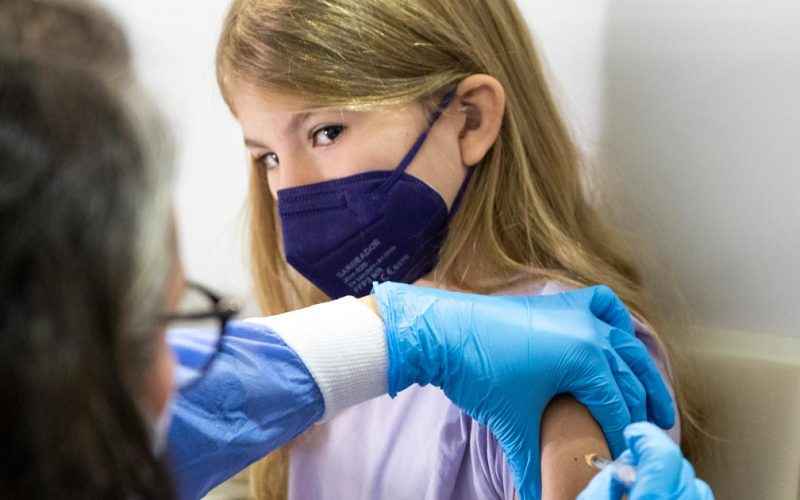Multiple studies have concluded that Pfizer’s Covid mRNA vaccine is contaminated with so many DNA fragments that just one dose of the shot is enough to cause cancer.
Multiple laboratory studies now confirm that Pfizer’s COVID-19 mRNA vaccine is heavily contaminated with plasmid DNA.
The latest analysis finds that one dose of the Pfizer vaccine typically contains over 200 billion DNA fragments.
These DNA fragments can be incorporated into the DNA of the vaccinated individual and interfere with the expression of oncogenes and tumor suppression genes.
This DNA contamination has cancer implications for millions of people who were manipulated to take part in this biowarfare experiment.
Dr. Phillip Buckhaults, a cancer genomics expert, recently spoke about his findings in front of the South Carolina Senate Medical Affairs Ad-Hoc Committee on the Department of Health and Environmental Control (“DHEC”).
Buckhaults has a PhD in biochemistry and molecular biology; he studies how genes cause cancer.
He and his team specialize in detecting foreign pieces of DNA in places where they can incorporate or interfere with healthy genetic expression.
“The Pfizer vaccine is contaminated with plasmid DNA. It’s not just mRNA, it’s got bits of DNA in it.” Prof. Buckhaults said in front of the South Carolina Senate committee.
One of his colleagues retrieved vials of the Pfizer COVID-19 vaccines from the vaccination program he managed in Columbia, South Carolina. Professor Buckhaults sequenced all the DNA from those vials.
He was surprised to see any DNA at all.
He said, “You can kind of work out what it is and how it got there and I’m kind of alarmed about the possible consequences of this both in terms of human health and biology.”
“This DNA can and likely will integrate into the genomic DNA of cells that got transfected with the vaccine mix,” he warned.
He says the DNA could be the reason why people are having cardiac events and autoimmune attacks after vaccination.
“We do this in the lab all the time; we take pieces of DNA, we mix them up with a lipid complex like the Pfizer vaccine is in, we pour it onto cells and a lot of it gets into the cells. And a lot of it gets into the DNA of those cells and it becomes a permanent fixture of the cell.”
According to Buckhaults, the long-term risks of DNA integration include cancer.
“It’s also a very real theoretical risk of future cancer in some people.
“Depending on where in the genome this foreign piece of DNA lands it can interrupt a tumor suppressor or activate an oncogene.”
The DNA alterations can also be passed on to future generations. Because DNA lasts for hundreds of thousands of years, “alterations to the DNA can stick around” according to Buckhaults.
Prof. Buckhaults said most of the DNA in Pfizer’s vaccines contained around 100 base pairs.
Some were 500 to 5,000 base pairs long.
The size doesn’t make a difference because any of these fragments can be incorporated into the human genome.
“Your genome risk is just a function of how many particles there are,” he said.
“All these little pieces of DNA that are in the vaccine [give] many many thousands of opportunities to modify a cell of a vaccinated person.”
Buckhaults said the pieces are very small because they were chopped up during the manufacturing process.
“The pieces are very small because during the process they chopped them up to try to make them go away – but they actually increased the hazard of genome modification in the process,” he said.
When Buckhault’s team pieced all the DNA fragments back together, they were able to determine the source. The chopped-up DNA comes from a plasmid called Agilent, which is manufactured by Agilent Technologies, Inc., a life sciences company in California.
According to Buckhault’s team, Pfizer used this plasmid to clone spike proteins into it.
The plasmid is then fed an RNA polymerase so it can replicate mRNA. In the process, this mRNA is then encapsulated in lipid nanoparticles, which are injected into the cells for efficient delivery of the mRNA and the DNA contamination.
Buckhaults said, “They [Pfizer-BioNTech] failed to get the DNA out before they did this.”
While “they did make some effort to chop it up … all these little pieces of the plasma got packaged in with the RNA.”
Buckhaults said it’s “clear as day what happened just from the forensics of looking at the DNA sequencing.”
Buckhaults said vaccinated people can be tested to see if the foreign plasmid DNA eventually integrated into their genome.
While most vaccine adverse events are hard to prove, this integration leaves an imprint that can be detected later.
The consequences of this DNA contamination are devastating for humanity and future generations.

